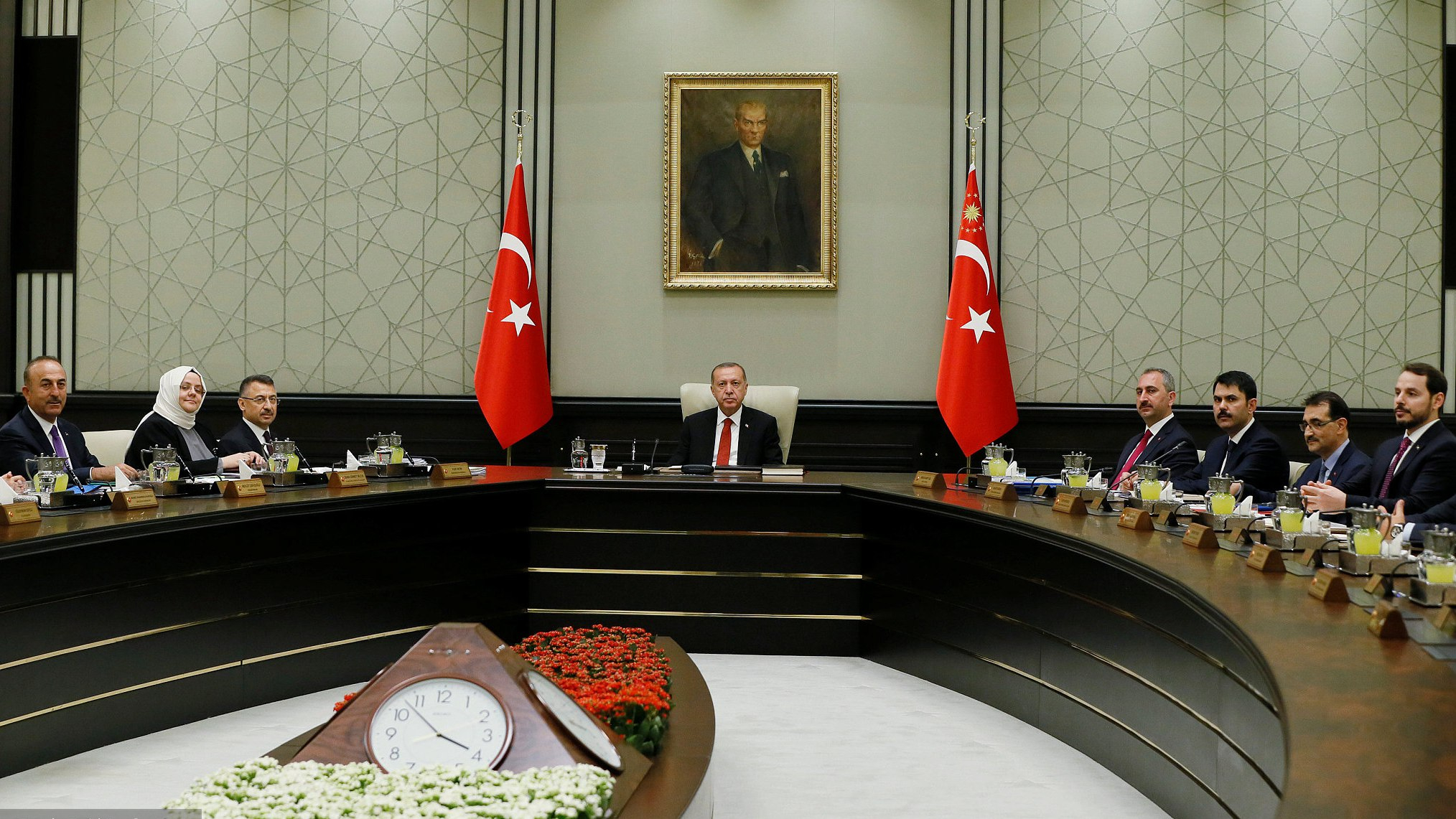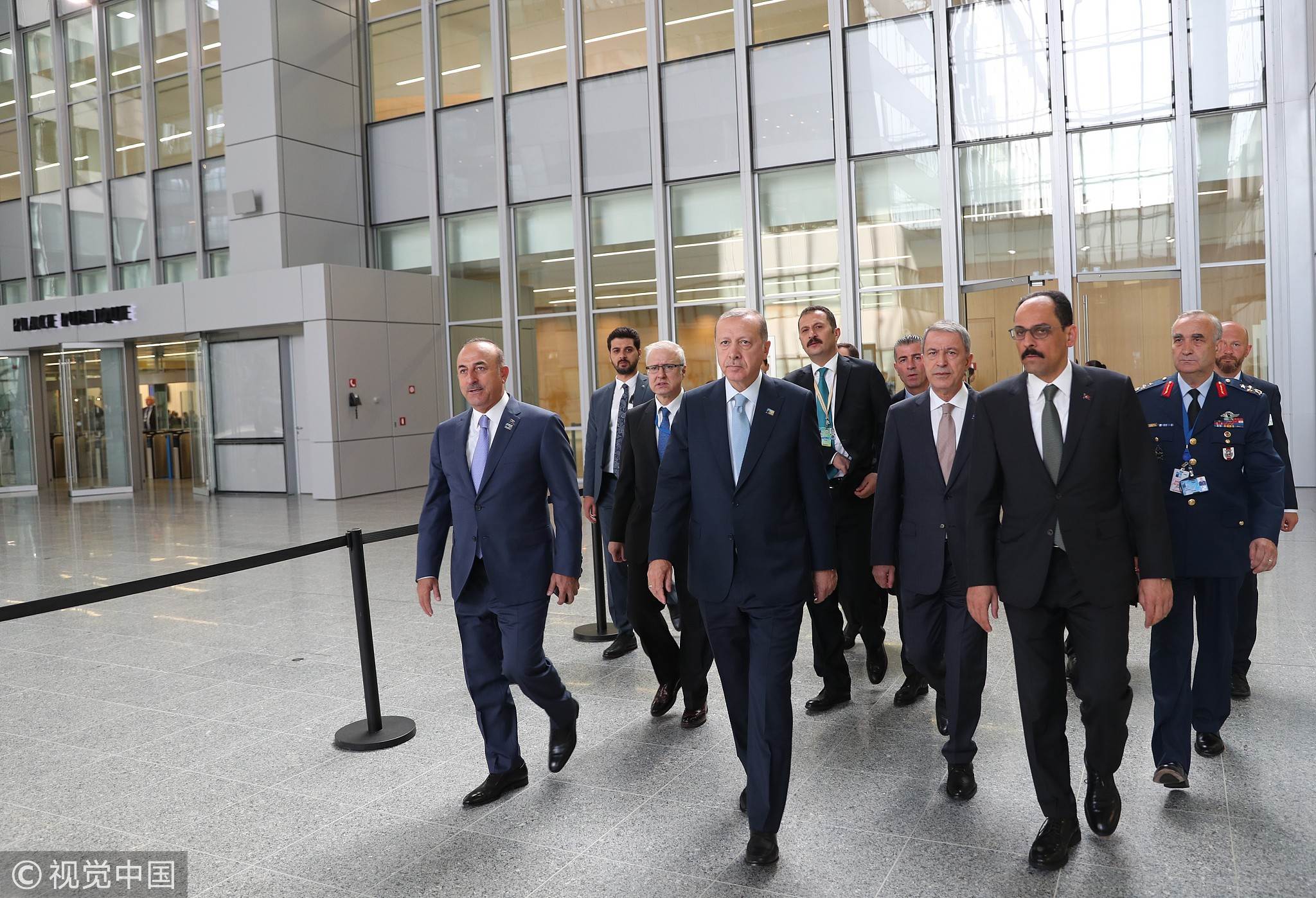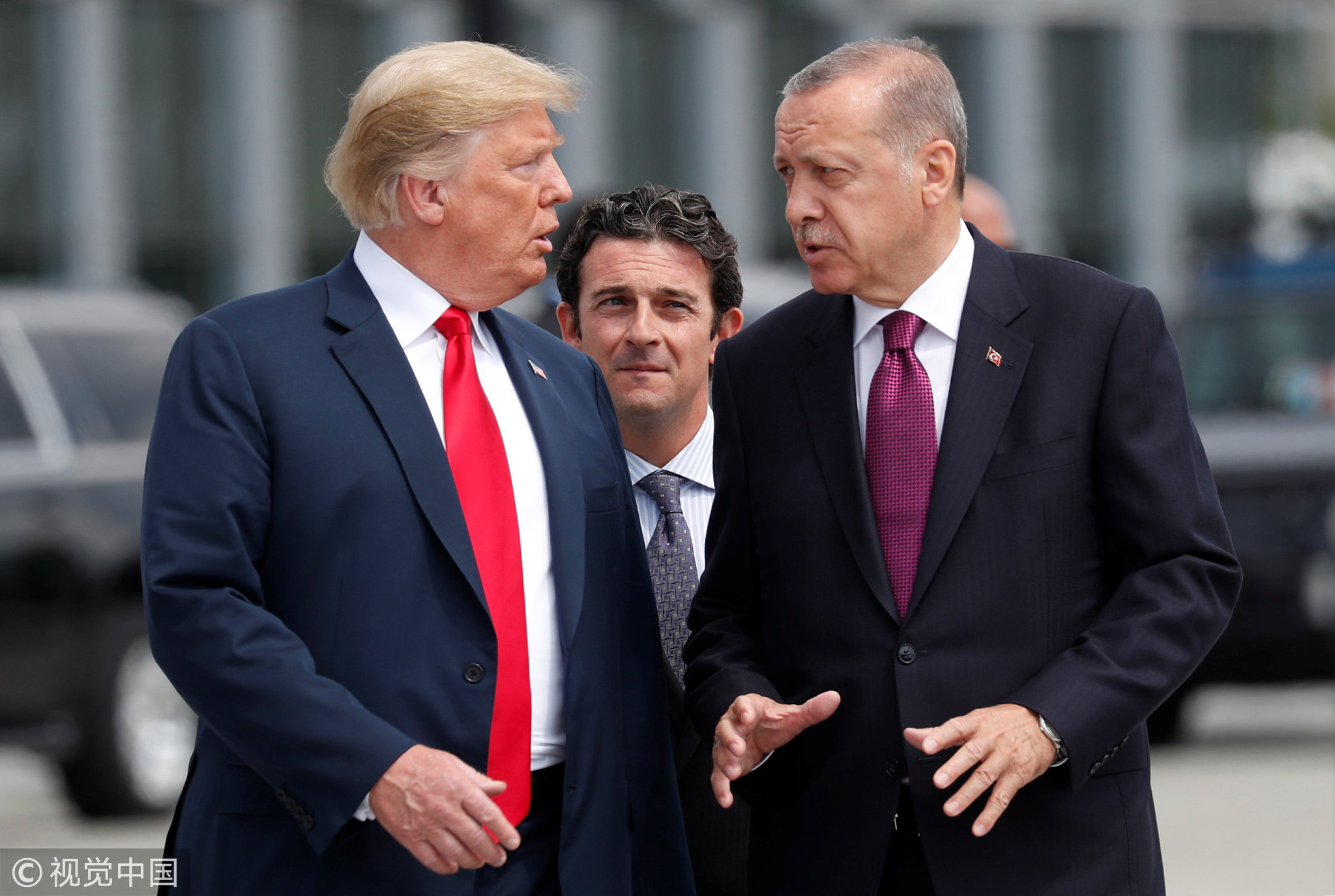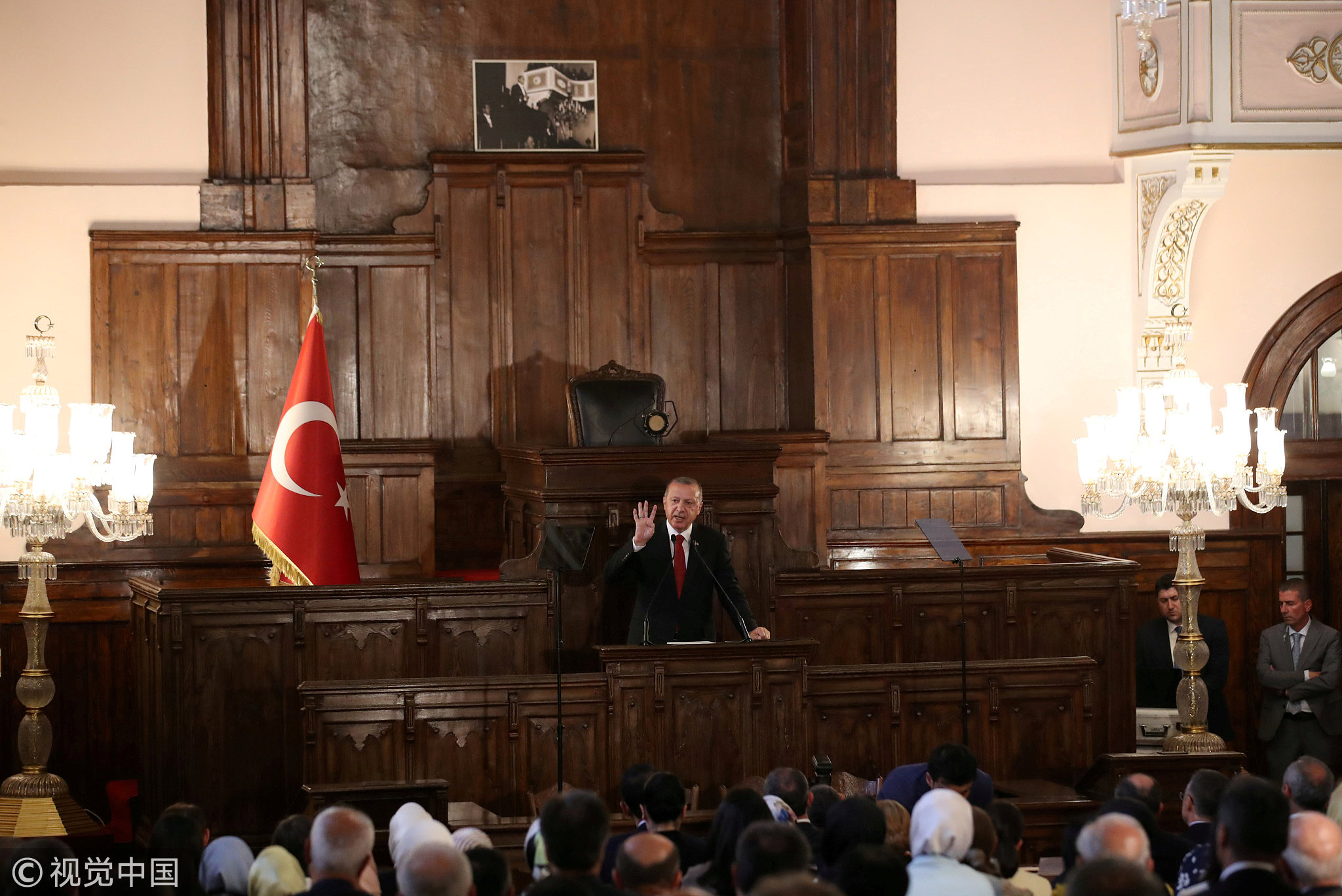
Politics
18:38, 15-Jul-2018
Erdogan reshapes Turkey's key institutions
Updated
17:44, 18-Jul-2018
CGTN

Turkey issued presidential decrees on Sunday reshaping key political, military and bureaucratic institutions as part of the transformation toward a more executive presidential system since the general election in June.
President Recep Tayyip Erdogan was sworn in on Monday under the new presidential system and now holds executive powers, allowing him to issue decrees on administrative matters and appoint and remove senior civil servants.

President Recep Tayyip Erdogan (C) arrives to attend the 3rd session of Heads of State and Government meeting on the second day of 2018 NATO (North Atlantic Treaty Organization) Summit at NATO headquarters on July 12, 2018, in Brussels, Belgium. /VCG Photo
President Recep Tayyip Erdogan (C) arrives to attend the 3rd session of Heads of State and Government meeting on the second day of 2018 NATO (North Atlantic Treaty Organization) Summit at NATO headquarters on July 12, 2018, in Brussels, Belgium. /VCG Photo
Erdogan has said the powerful executive presidency is vital to make government more efficient, drive economic growth and ensure security.
Among the latest changes, the General Staff was brought under the authority of the defense minister, according to Turkey's state-run news agency, a move following Erdogan's appointment of military commander Hulusi Akar as defense minister.

President Donald Trump and Turkish President Erdogan gesture as they talk at the start of the NATO summit in Brussels, Belgium July 11, 2018. /VCG Photo
President Donald Trump and Turkish President Erdogan gesture as they talk at the start of the NATO summit in Brussels, Belgium July 11, 2018. /VCG Photo
In total, the country's Official Gazette published seven decrees affecting many state institutions, including the secretariat of the National Security Council, the Defense Industry Directorate and the State Supervisory Council.
The changes coincide with the second anniversary of an attempted coup during which at least 250 people were killed, many of them unarmed civilians when rogue soldiers attempted to topple Erdogan's government.

President Erdogan makes a speech at the old parliament building in Ankara, Turkey on July 13, 2018. /VCG Photo
President Erdogan makes a speech at the old parliament building in Ankara, Turkey on July 13, 2018. /VCG Photo
A state of emergency was imposed after the failed attempt on July 15, 2016, and is set to expire this week.
Erdogan's ruling AK Party and its political ally plan to introduce security regulations to ensure the "fight against terrorism" will continue after emergency rule ends, two sources told the reporter.
(Cover: President Tayyip Erdogan chairs a cabinet meeting in Ankara, Turkey July 13, 2018. /VCG Photo)
6842km
Source(s): Reuters

SITEMAP
Copyright © 2018 CGTN. Beijing ICP prepared NO.16065310-3
Copyright © 2018 CGTN. Beijing ICP prepared NO.16065310-3